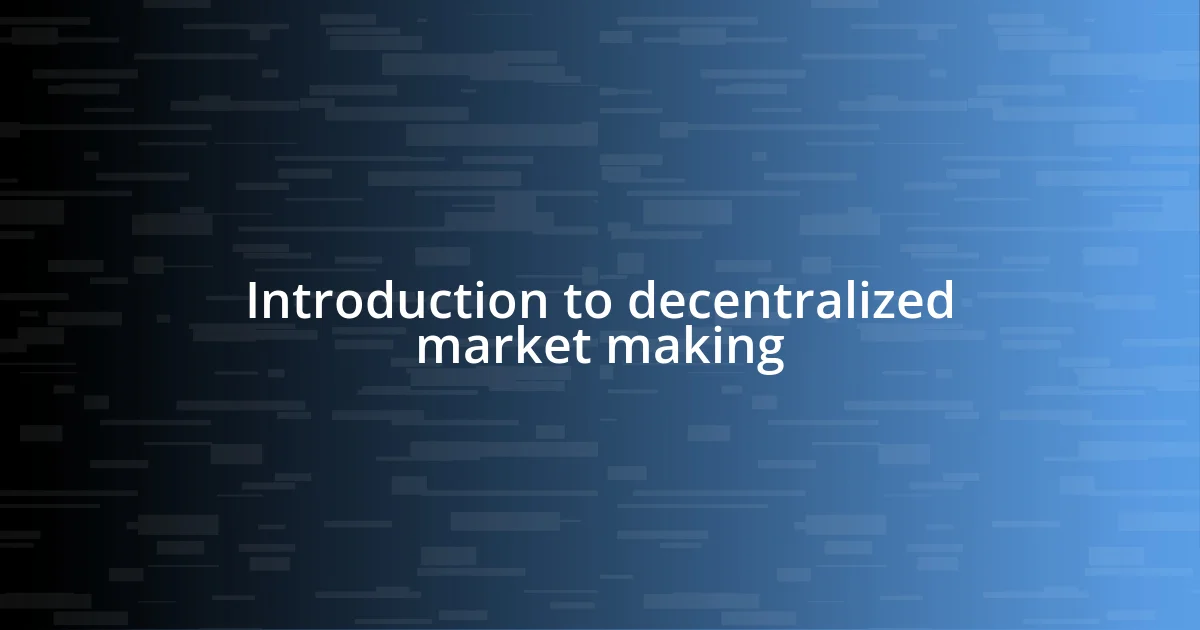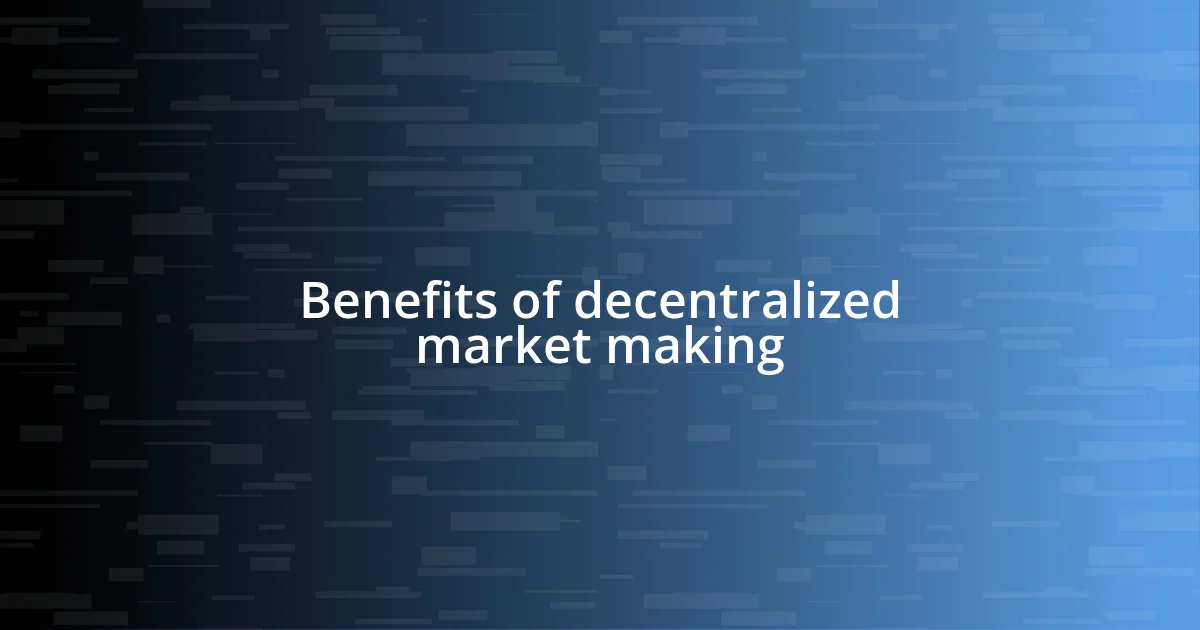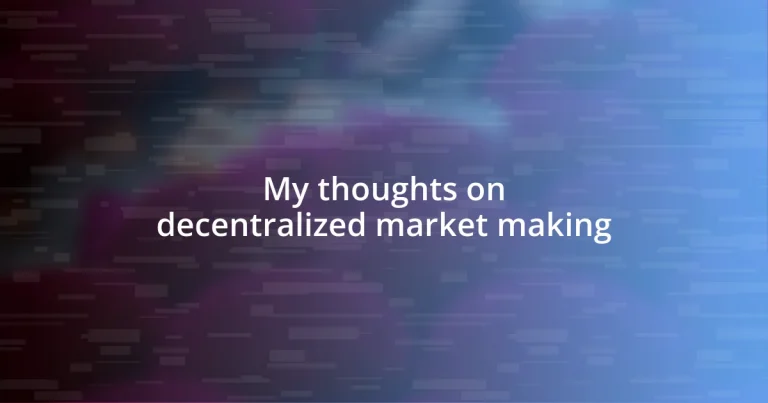Key takeaways:
- Decentralized market making empowers traders by eliminating traditional intermediaries through algorithms and liquidity pools, fostering a more inclusive trading environment.
- Key benefits include lower fees, enhanced transparency, accessibility for all participants, reduced manipulation risks, and the introduction of innovative financial products.
- Successful strategies involve managing liquidity effectively, continuously monitoring market conditions, and utilizing advanced algorithms for optimized trade executions.

Introduction to decentralized market making
Decentralized market making is a fascinating evolution in the trading landscape. Imagine a world where traditional intermediaries are unnecessary, a realm where trades happen seamlessly through smart contracts. It’s exciting, isn’t it? I remember the first time I interacted with a decentralized exchange (DEX); I felt a rush of empowerment knowing that I was participating directly in the market, free from dealer constraints.
At its core, decentralized market making leverages algorithms and liquidity pools to facilitate trading without reliance on centralized entities. This not only enhances efficiency but also significantly lowers costs. I’ve found that it’s incredibly liberating to engage in a marketplace that allows anyone with a bit of digital currency to play a role in market dynamics. Have you ever pondered how this shifts power dynamics in trading? I can tell you it invites a more inclusive approach, providing opportunities for those who may have previously felt locked out.
Furthermore, the innovative nature of decentralized market making brings a blend of risk and reward that feels thrilling. The use of automated processes can lead to remarkable price discovery, but I often reflect on how crucial it is to understand the underlying mechanisms. After all, navigating this new terrain requires a level of digital literacy that’s becoming increasingly valuable in today’s financial ecosystem. What do you think? Are you ready to dive into this decentralized future?

Benefits of decentralized market making
Decentralized market making introduces several compelling benefits that can transform the way we approach trading. One of the standout advantages is enhanced liquidity. I still remember the first time I realized how liquidity pools work; I was amazed by how accessible they made capital, allowing anyone to participate and contribute to the market. With decentralization, participants don’t just passively wait on the sidelines. Instead, they actively engage in making the market work for them, which fosters a sense of community and shared success.
Here are some benefits of decentralized market making:
-
Lower Fees: Participants often face reduced transaction costs compared to traditional exchanges.
-
Transparency: The use of blockchain technology ensures that all trades are open to scrutiny, enhancing trust among users.
-
Accessibility: Everyone can provide liquidity, regardless of their financial background or location.
-
Decentralization of Power: There’s no single entity that controls the market, reducing manipulation risks.
-
Innovative Financial Products: The flexibility of smart contracts allows for unique financial instruments and trading strategies, opening up new avenues for profit.
Each of these benefits resonates with me because they represent a shift towards a fairer financial environment, where everyone has a voice and can partake in opportunities that were once reserved for a select few. It’s thrilling to witness such a transformative movement happening right before our eyes.

Strategies for effective market making
Effective market making in a decentralized environment requires a deep understanding of liquidity management. From my experience, one successful strategy is to create balanced liquidity pools that cater to high-demand trading pairs. I recall a time when I focused on providing liquidity for a trending token; the rewards were substantial. Have you ever considered how selecting the right tokens can significantly influence your market making success?
Another crucial tactic is continuous monitoring and dynamic adjustment of your market-making strategies. Market conditions can change in an instant, and I’ve learned that being proactive is key. For instance, during a period of high volatility, I once adjusted my pricing algorithms multiple times a day to stay competitive. Isn’t it fascinating how a little adaptability can protect your investments while enhancing market efficiency?
Finally, employing advanced algorithms can optimize trade executions and minimize slippage. In my journey, I’ve found that using sophisticated trading bots allows for real-time data analysis, which is invaluable when executing trades. Have you tried automating your strategies? I can tell you, when I did, the level of sophistication in my trade management improved dramatically, allowing me to react instantly to market changes.














